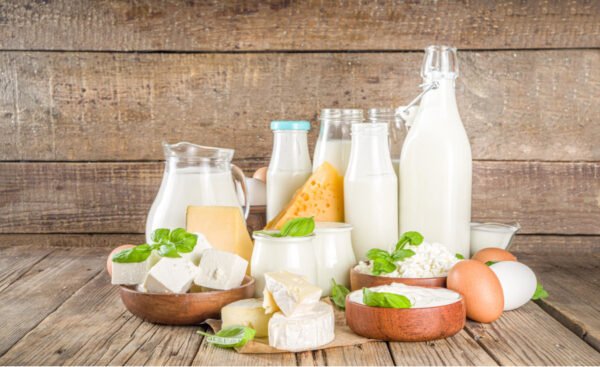
Forget ultra-processed foods, Brits should be consuming nutrient rich ‘whole’ foods such as fruit and vegetables, lean unprocessed meat, pulses, fish and dairy, according to Head of Nutrition at the Agriculture and Horticulture Development Board (AHDB) Kate Arthur.
Her advice comes at a time when the British Nutrition Foundation[i] has launched their latest research on ultra-processed foods (UPFs). ManyUPF’s have poor nutrient profiles and are high in ingredients widely recommended we limit such as saturated fat, salt, and sugar. They are also low in nutrients we need to eat more of such as fibre and certain vitamins and minerals. However, not all UPF’s are unhealthy, and demonising all processed foods could adversely impact intake of affordable sources of nutrients.
Kate’s top tips on how to incorporate whole – or minimally processed – foods, include:
Consider unprocessed lean meat in a healthy diet
Unprocessed lean red meat is a key source of high-quality protein, as well as other essential vitamins and minerals such as, iron, zinc, and Vitamin B12, nutrients often lacking in the UK diet. There is a big difference between ultra-processed meat and dairy products, and good quality British meat and dairy. It’s also important to be aware that plant-based or vegan meat alternatives are classified as ultra processed and many can host unhealthy levels of fat and salt, whilst not including as many of the essential vitamins and minerals.
One example of an unprocessed meat source which can be easily incorporated into your diet is 5% fat beef mince, which is naturally rich in protein, low in sodium and provides eight vitamins and minerals (rich in niacin, vitaminB6, vitamin B12 and zinc, and a source of riboflavin, iron, potassium and phosphorus). Some vegetarian/ plant-based mince alternatives on the other hand, will have a lengthy list of ingredients, with the protein added from sources such as rehydrated textured soya protein, wheat and pea proteins, along with other added ingredients such as salt, sugar, flavourings and thickeners. They also need to be fortified to make them more nutritionally comparable, and many won’t be fortified so consumers could be missing out on nutrients such as iron and vitamin B12.
Other lean meat sources – i.e., those which have been minimally processed – include pork medallions, lamb loin and chicken breasts.
Dairy should be part of a healthy diet
Dairy and dairy products– which are whole foods – can be incorporated as part of a healthy balanced diet, too. Milk and dairy foods such as natural yogurt contribute many essential nutrients including protein, calcium, vitamin A, vitamin B12, riboflavin, iodine, phosphorus, and potassium and therefore can be an important part of a healthy balanced diet during the life course. Calcium is a particularly important nutrient for children as it’s needed for growing and building strong bones and teeth, and Vitamin B12 which keeps your body’s blood and nerve cells healthy is key – particularly for young or pregnant women – as lack of it can lead to anaemia.
It’s worth noting that, ultra-processed cheeses and sugary yoghurts are very different to traditionally made cheese and live natural yoghurt that don’t necessarily provide the same valuable sources of fat-soluble vitamins, calcium, protein and can naturally provide beneficial microbes for gut health.
Additionally, Plant based alternatives to dairy such as oat drinks and soya alternatives to yogurt are classified as UPF’s as they will have number of ingredients added when processed such as added sugars, stabilisers and flavourings. For people who avoid dairy it is important they choose plant-based alternatives that have been fortified with vitamins and minerals such as calcium, vitamin B12 and iodine that you would find naturally in dairy.
Balance is key
The key to your diet is to ensure balance, and make sure you’re aiming to eat the recommended amount of foodstuffs as per the Government dietary recommendations guidelines.
As a rule of thumb when shopping, aim to incorporate as many wholefoods as possible into your trolley such as unprocessed meat, natural yogurt, wholegrains, pulses, nuts, fruit and veg etc. It’s also worthwhile checking the traffic light label system, as some foods you may think are ultra-processed – and therefore potentially deficient in nutrients – can be incorporated into a varied diet, including the likes of packaged wholemeal bread, lower sugar, high-fibre wholegrain breakfast cereals and low-fat, lower sugar yoghurts.
If you’re looking for inspiration for healthy and nutritious meals visit the We Eat Balanced website, which includes recipes and nutritional information.
